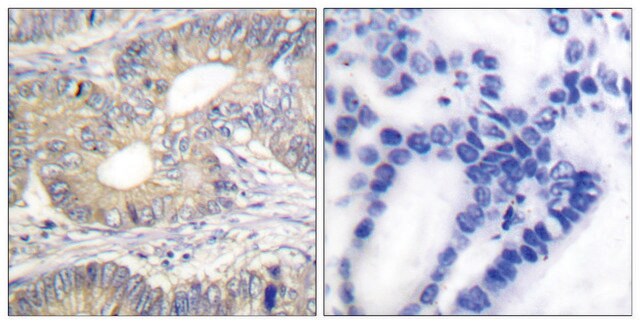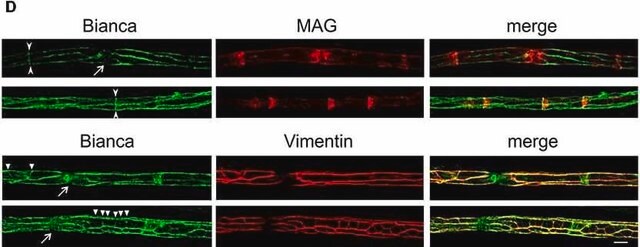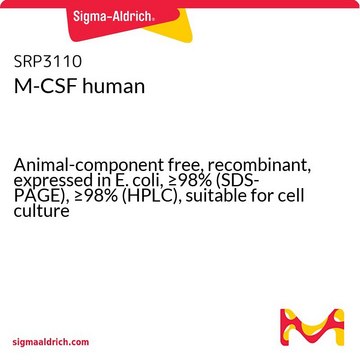MAB1049
Anti-Bone Morphogenetic Protein 4 Antibody, clone 3H2
clone 3H2, Chemicon®, from mouse
Synonym(s):
BMP-4, DVR-4
About This Item
Recommended Products
biological source
mouse
Quality Level
antibody form
purified immunoglobulin
antibody product type
primary antibodies
clone
3H2, monoclonal
species reactivity
rat, human, mouse
manufacturer/tradename
Chemicon®
technique(s)
ELISA: suitable
immunocytochemistry: suitable
western blot: suitable
input
sample type neural stem cell(s)
sample type mesenchymal stem cell(s)
isotype
IgG2b
NCBI accession no.
UniProt accession no.
shipped in
wet ice
target post-translational modification
unmodified
Gene Information
human ... BMP4(652)
mouse ... Bmp4(12159)
rat ... Bmp4(25296)
General description
Specificity
Human BMP-4 (accession number P12644) precursor (389 aa, glycosilated) consists of a propeptide (273 aa) and active BMP-4 (116 aa, glycoslyated; MW reduced 17-20 kDa).
Immunogen
Application
Western blot using osteoinductive cells; i.e., BFP and Saos-2
Optimal working dilutions must be determined by the end user.
Stem Cell Research
Mesenchymal Stem Cells
Target description
Physical form
Storage and Stability
Analysis Note
Mouse brain extract
Other Notes
Legal Information
Disclaimer
Not finding the right product?
Try our Product Selector Tool.
Storage Class Code
10 - Combustible liquids
WGK
WGK 2
Flash Point(F)
Not applicable
Flash Point(C)
Not applicable
Certificates of Analysis (COA)
Search for Certificates of Analysis (COA) by entering the products Lot/Batch Number. Lot and Batch Numbers can be found on a product’s label following the words ‘Lot’ or ‘Batch’.
Already Own This Product?
Find documentation for the products that you have recently purchased in the Document Library.
Our team of scientists has experience in all areas of research including Life Science, Material Science, Chemical Synthesis, Chromatography, Analytical and many others.
Contact Technical Service




